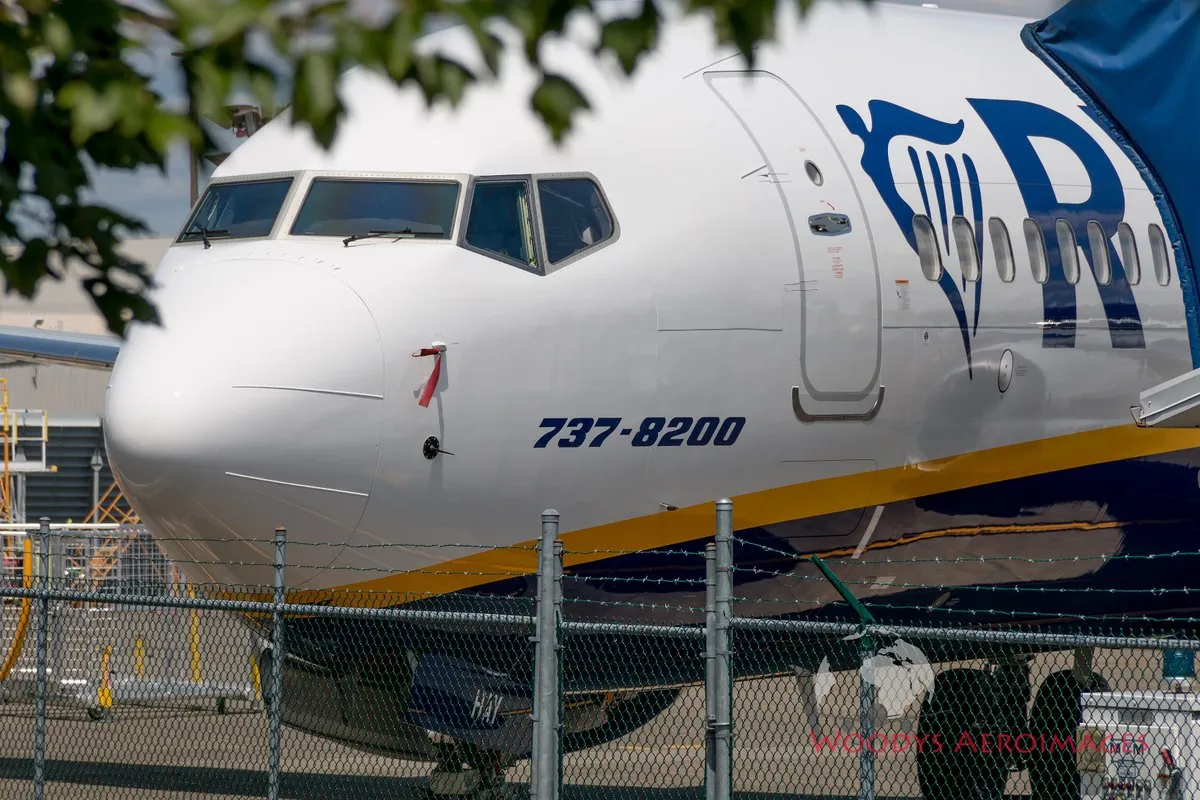
Boeing tightens procedures after foreign objects found in stored MAX aircraft
Feb 19, 2020

Boeing has implemented stricter procedures following the discovery of foreign objects in stored 737 MAX aircraft. These findings raised concerns about the integrity and safety of the planes, prompting the company to enhance its inspection and maintenance protocols. The measures aim to ensure that all aircraft are thoroughly checked before being delivered to customers. Boeing's response reflects its commitment to maintaining high safety standards and addressing issues that could potentially impact the aviation industry. The company is focusing on improving oversight in its manufacturing and storage processes to prevent similar occurrences in the future.
Boeing has taken significant steps to enhance its procedures after discovering foreign objects in stored MAX aircraft. This decision underscores the company’s commitment to safety and quality control in its manufacturing and maintenance processes. The recent findings have prompted a thorough review of protocols to ensure that such incidents do not reoccur, reinforcing the importance of operational excellence within the aviation industry.
Understanding the Issue: Foreign Objects in Aircraft
Foreign objects in aircraft can lead to severe safety hazards, affecting everything from engine performance to structural integrity. In the case of the Boeing 737 MAX, the presence of these objects raised alarms regarding maintenance practices and the overall inspection process. As a result, Boeing is implementing stricter measures to safeguard the integrity of its aircraft and reassure stakeholders and customers alike.
New Procedures Implemented by Boeing
In response to the foreign object discoveries, Boeing has introduced a series of new procedures aimed at enhancing its inspection processes. These changes are crucial for maintaining operational safety and restoring confidence in the MAX series. The following table outlines some of the key procedural changes:
| Procedure Change | Description |
|---|---|
| Enhanced Inspection Protocols | Implementing more rigorous inspections at all stages of aircraft storage and maintenance. |
| Training for Personnel | Mandatory training sessions for staff involved in aircraft handling and inspection to recognize and report potential hazards. |
| Reporting System Overhaul | Upgrading the reporting system to ensure timely communication regarding any findings or concerns related to aircraft maintenance. |
| Regular Audits | Conducting frequent audits of maintenance and storage facilities to ensure compliance with new safety protocols. |
Impact on the Boeing 737 MAX Program
The Boeing 737 MAX program has faced significant challenges in recent years, primarily due to safety concerns and regulatory scrutiny. The recent discovery of foreign objects adds another layer of complexity to the program's recovery efforts. By tightening procedures, Boeing aims to mitigate any further risks and restore trust among airlines and passengers.
Furthermore, these procedural improvements are expected to have a positive impact on operational efficiency. By addressing potential safety issues proactively, Boeing can reduce the likelihood of costly delays and enhance the overall reliability of the MAX aircraft. This is vital for airlines that rely on the MAX to meet growing travel demands.
Collaboration with Regulatory Authorities
Boeing's response to the foreign object findings also involves close collaboration with regulatory authorities. The Federal Aviation Administration (FAA) and other aviation safety organizations play a crucial role in ensuring that manufacturers adhere to stringent safety standards. Boeing has committed to working alongside these authorities to develop best practices that not only address current issues but also prevent future occurrences.
Customer Assurance and Future Steps
For airlines operating the 737 MAX, assurance regarding aircraft safety is paramount. Boeing is focused on communicating transparently with its customers about the steps being taken to rectify the situation. The company recognizes that restoring confidence is essential for its long-term success in the aviation market.
Looking forward, Boeing plans to continue evaluating and refining its procedures. The goal is to create a culture of safety and quality that permeates every aspect of its operations. This commitment to excellence will not only improve the Boeing 737 MAX program but will also enhance the company's overall reputation in the aviation industry.
Conclusion: A Commitment to Safety and Quality
Boeing's decision to tighten procedures in response to foreign objects found in stored MAX aircraft reflects a broader commitment to safety and quality in the aviation sector. As the company works to implement new inspection protocols and enhance training for personnel, it sets a precedent for operational excellence in the industry.
By taking these proactive measures, Boeing aims to ensure that all its aircraft meet the highest safety standards. This dedication will play a critical role in the recovery and future success of the Boeing 737 MAX program, and ultimately, the trust of customers and passengers worldwide.
In conclusion, the aviation industry must prioritize safety and quality control to avoid incidents that can jeopardize lives and reputations. Boeing’s recent actions demonstrate a clear understanding of this responsibility and a willingness to take the necessary steps to uphold its standards.
Related Articles

Explore Thailand: The Best Islands to Visit for Paradise, Adventure, and Relaxation

The Ultimate Guide to the Best Islands in Thailand for Your Next Getaway

Do babies need passports? How to get a passport for a newborn

How to get a U.S. passport fast: here’s how to expedite the process

What is Mobile Passport Control: 5 reasons why you should use it

SENTRI vs. Global Entry: A detailed guide

Do you need a passport to go to the Bahamas? Let’s find out

Do you need a passport to go to Mexico? A detailed guide

Do you need a passport to go to Canada? We got the answer

Do You Need a Passport for a Cruise: An Essential Travel Guide

Booster Seat Requirements: All the Rules to Follow in Your Rental Car

What Are the World’s Most Powerful Passports, and How Does Yours Rank?

How to Take a Passport Photo at Home: A Helpful Guide

You've got to have heart! Southwest's new livery

Your opinion: Should water be free on low cost carriers?

Young women bolder than guys as solo travellers
